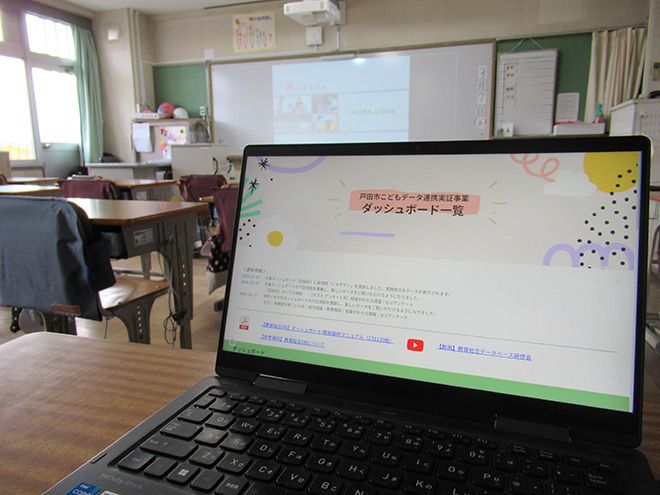According to search focus marking platform SOCi, Google’s (GOOG, GOOGL) AI search software continues to outperform its competitors, while OpenAI’s ChatGPT pales in comparison, coming in dead last. SOCi CEO Afif Khoury joins Asking For a Trend to discusses the study’s methodology and findings.
Khoury elaborates on the findings: “The spin on it may currently not be in favor of GPT in the sense that, generative AI tools, they have access to the internet. So GPT has access to this local data as much as Bing or Google do because it’s public, publicly found information, but it does come down to how they write their algorithms and what they prioritize and Google has been in the local game for a long time and heavily prioritizes that data. So I wouldn’t say it’s unfair in that different companies have access to different information, but if when you pick a certain topic, some may be better than others for that topic, depending on what they prioritize.”
For more expert insight and the latest market action, click here to watch this full episode of Asking for a Trend.
This post was written by Nicholas Jacobino
Video Transcript
While the hype and investment around A I continues to thrive.
A new study shows Gen A I has done little to disrupt the existing balance in search engines.
Google Gemini according to search focused marketing platform, Sochi ranked the highest when it came to quality local searches.
While chat G BT they said coming in dead last here with more on the study’s finding is Sochi’s founder and CEO of Thief, Coy of Thief and it is good to see you.
So you basically, if you, you and your team, you kind of evaluated these new gen A I tools when it comes to local search specifically wa walk us through the study of fi what was your, what was your methodology here?
Yeah, thanks Josh.
Good to be here with you.
Um So that’s right.
We were looking at how different A I tools compare in delivering really local search results is where we focus and we analyze six of the top generative A I tools you had Google search generative experience, Sge uh Google Gemini Chat GP T Bing Copilot, uh perplexity and meta meta A I.
So as you stated, Google Gemini ranked the highest due to consistent ability to provide relevant detailed information.
Um often supported by Google Maps, which is their product and uh that they, they push really hard to get updated.
Uh Bing Copilot also performed pretty well.
Um Bing pulls a lot from Yelp, so it had a source that again often gets updated by local businesses.
Um So they were able to offer detailed results.
Uh On the other hand, uh tools like chat GP T kind of struggled with precise local searches uh often providing results that were not location specific.
Story continues
Um I think the, the variation highlights the importance of business optimization um of local sites and local sites that are, that are really important.
And it just shows us that the A I is only as strong as the data has access to or that it, it prioritizes uh Google has Google maps and there’s a lot of great data there that businesses tend to update quite often being had.
Yelp.
And I think uh chat GP T seems to be priority some other information that’s not as relevant for local searches.
Yeah.
And that’s why I wanted to go a because, you know, you think about the, the, you know, Google and Bing, for example, I mean, they, they are, you know, they’re designed for this Afif, right?
For local search chat chat G BT.
It isn’t.
I mean, Sam Altman, the man of uh of tremendous ambition.
We we’ll see what, what Sam has cooking in, in the product pipeline.
But I, I guess my question to you was, you know, is the study, is it fair in that sense of FIFA?
Are we, are we kind of really comparing apples to apples, so to speak?
Yeah, I, I suppose, look, let’s be fair.
The, the spin on it may currently not be in favor of GP T in the sense that um generative A I tools, they have access to the internet.
So GP T has access to this local data as much as uh Bing or, or, or Google do, right?
Because it’s public publicly found information.
Um but it does come down to how they write their algorithms and what they prioritize and Google has been in the local game for a long time and heavily prioritizes that data.
So I wouldn’t say it’s unfair in that different companies have access to different information.
Um But if, when you pick a certain topic, some may be better than others for that topic depending on what they prioritize.
Do we know if how gen A I is impacting local businesses?
I mean, do we, do we have a sense of whether it’s actually getting customers in the door and, and buying product a any actual line of sight there?
You know, the, the direct attribution is a little bit harder.
Um generative A I is significantly enhancing the local search capabilities in theory by providing more precise contextually relevant results.
Um uh The these LL MS are supposed to make it much easier to find things.
Right now, you usually get a list of results and then you got to go down each one and look for what you’re looking for by taking all that information and summarizing it.
It really is supposed to put it right at your fingertips.
So if you’re looking for a Starbucks near me or a Mexican restaurant near you, these A I tools are, are in theory the best way to go aggregate all that information across reviews and social and search in many different areas and give you the answer to what’s the best?
We’re in version one.
Josh, I think this is where everyone um just has to remember.
We’re in version one.
It starts with what data do we have access to?
How well is it being optimized for that?
Let’s get to version six and version 12.
And I think you’re gonna see a true and real strong impact, but I don’t think businesses can wait for that.
I think they’ll fall behind if they wait for that version while it’s a little clunky.
Now, they’ve got to optimize their data and be ready for that.
A thief.
Super interesting study.
Thanks so much for joining the show today.
We appreciate it.
My pleasure, Josh.
Thanks for having us.



